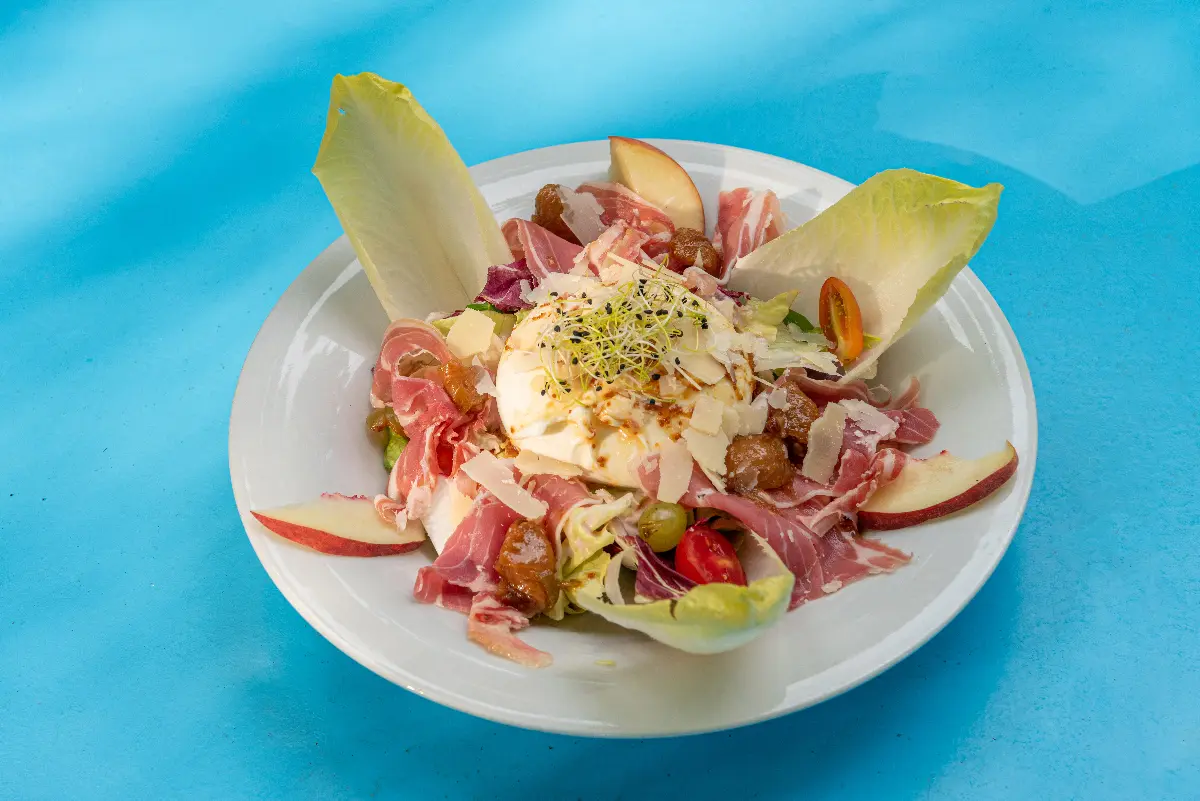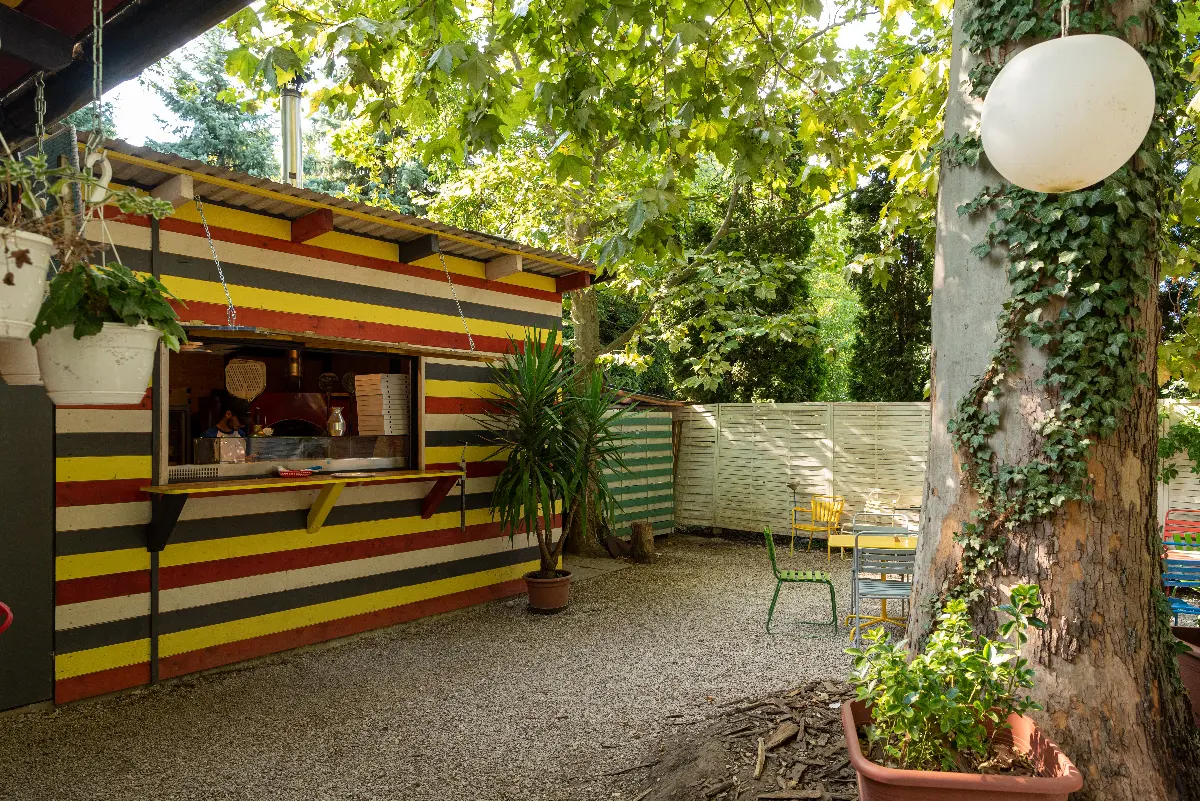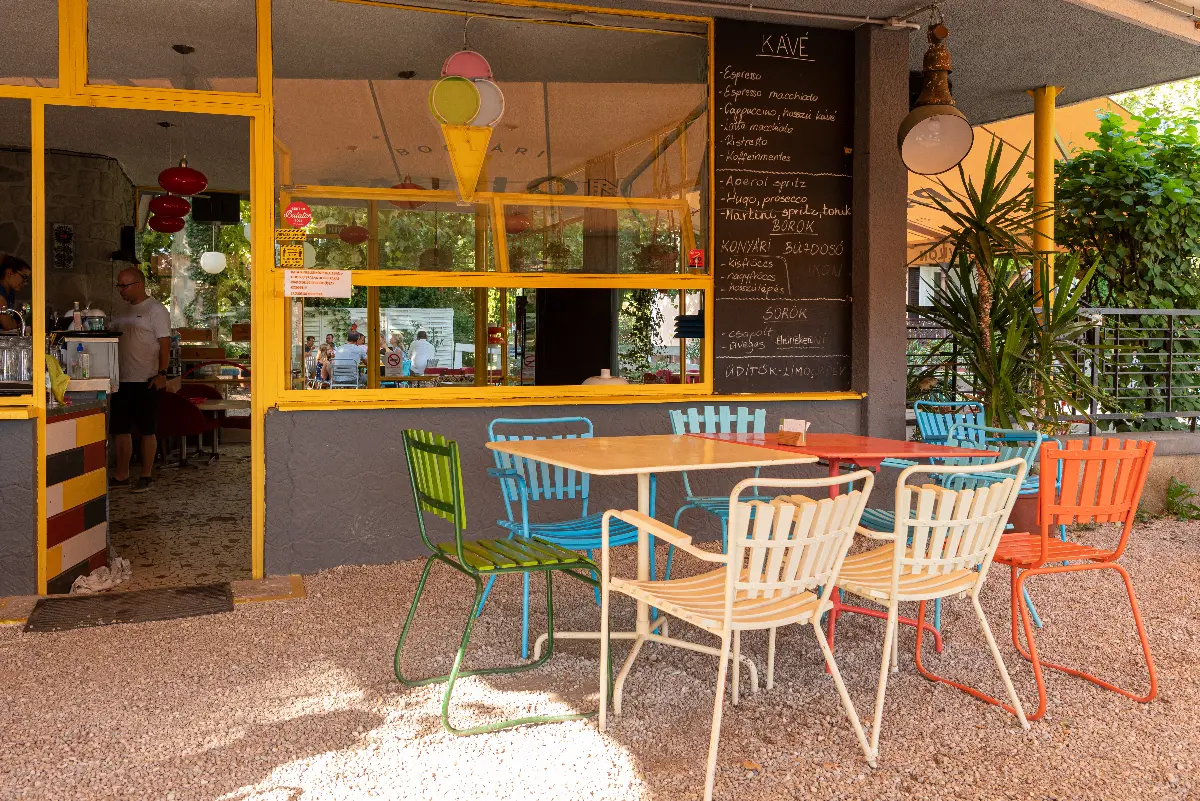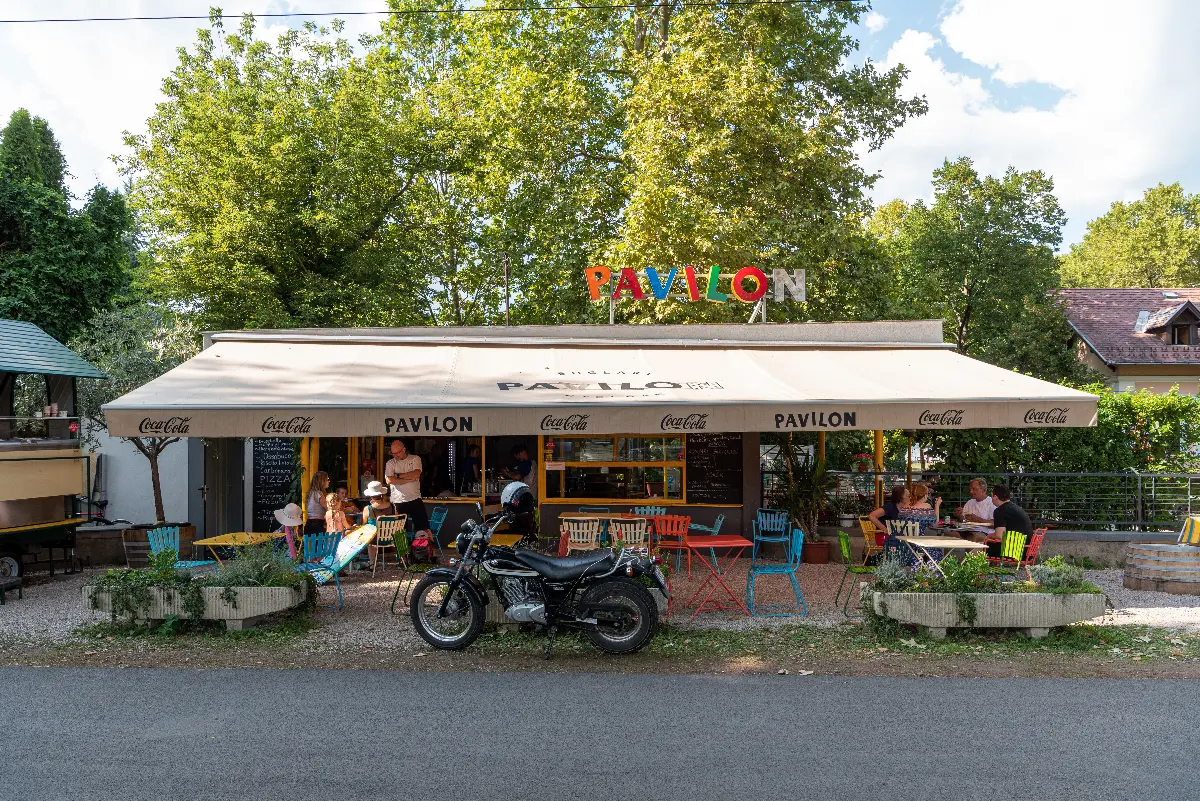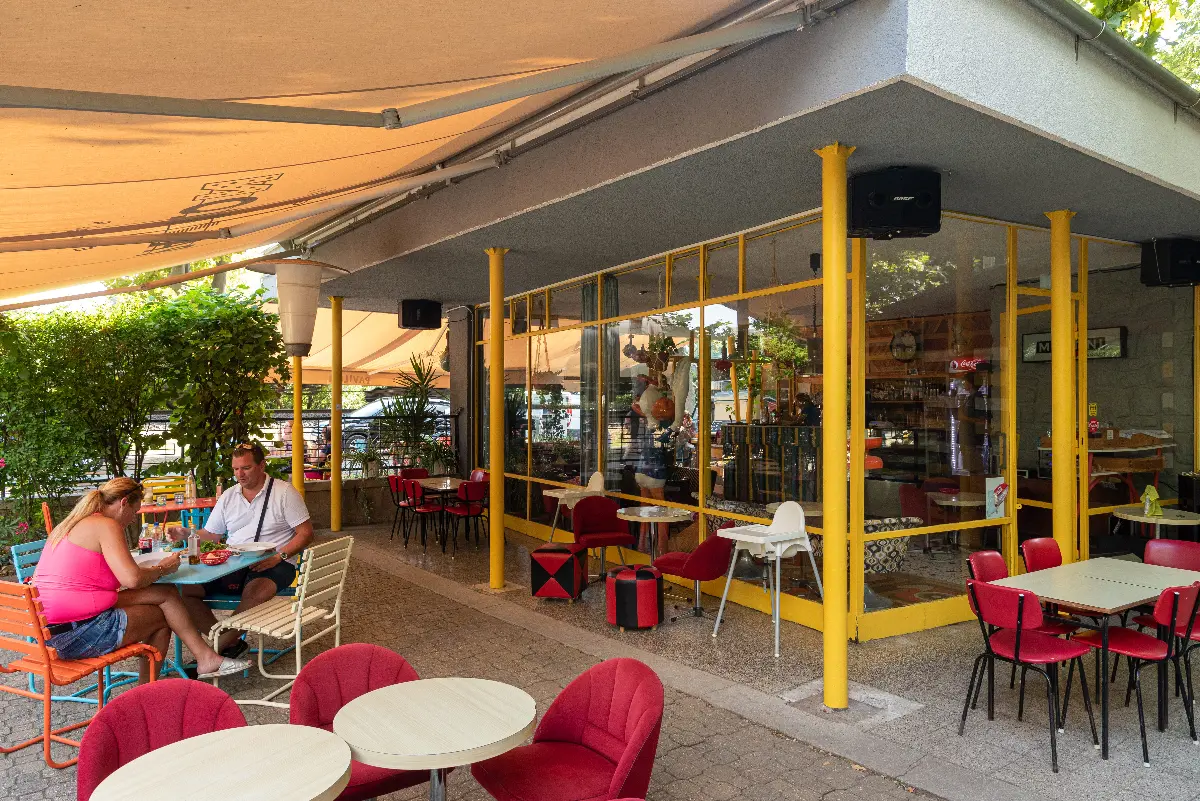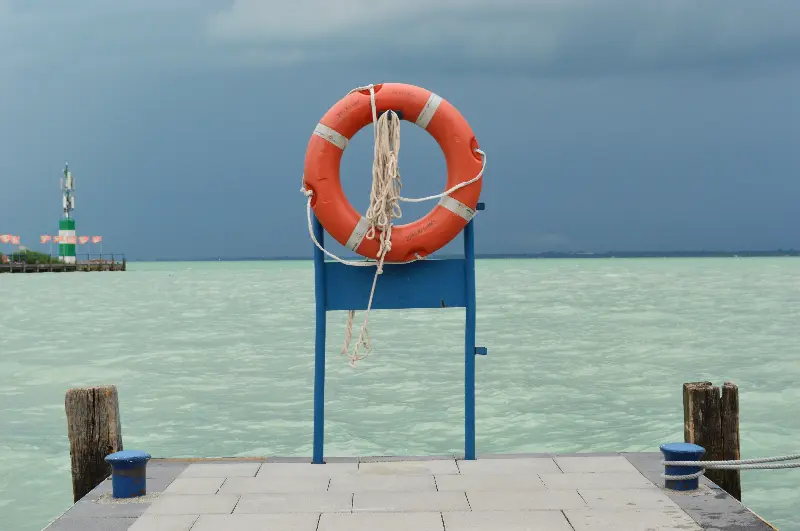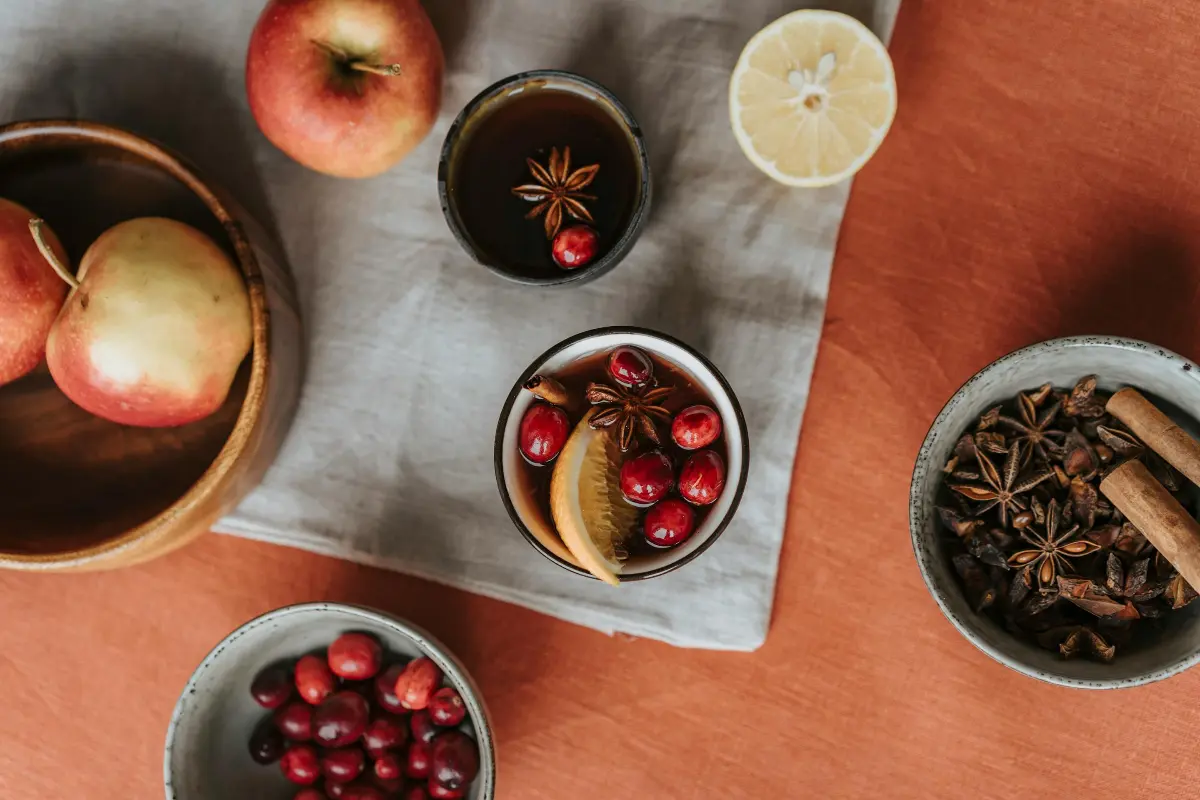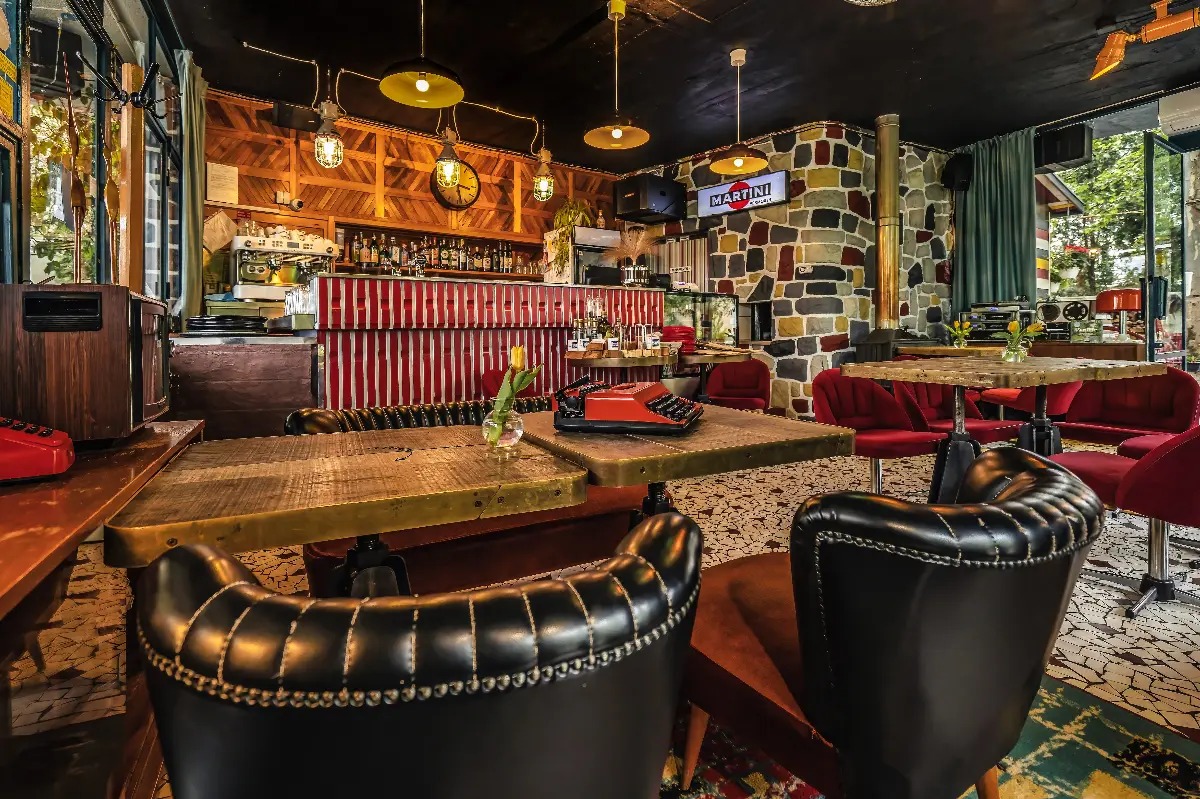
Helyszín címkék:
Italian la dolce vita in Balatonboglár
Szabó Sára
As one enters here, it appears that the Pavilon is an exciting mix of the retro of Balaton and the slackness of northern Italy.
Robi: We had been eyeing this building for a long time, it functioned as a cooperative liquor store at that time. After we managed to pounce on it, I collected the equipment walking from flea markets to flea markets. There are all sorts of retro treasures here, from the club chair of social realism to the optical fibre lamp well known from our childhood. But when it comes to food, langosh and fried meat were out of the question.
Dorisz: We dreamed of Italian-flavoured dishes made from high-quality ingredients on the menu. We lived in South Tyrol for more than two decades and we also worked in catering there. Italian gastronomy now lives in us (too).
What plunged you to Italy at that time?
Dorisz: I was working in a travel agency in Budapest when my friend suggested that I should go out to her in Northern Italy, in German and Italian speaking Merano. I didn’t want to move abroad at all, but she swore it was a wonderful place. Finally she convinced me. Robi was working as a chef in Austria then, but when we met, he was also sucked in by Merano. Marie and Bruno were born there too.
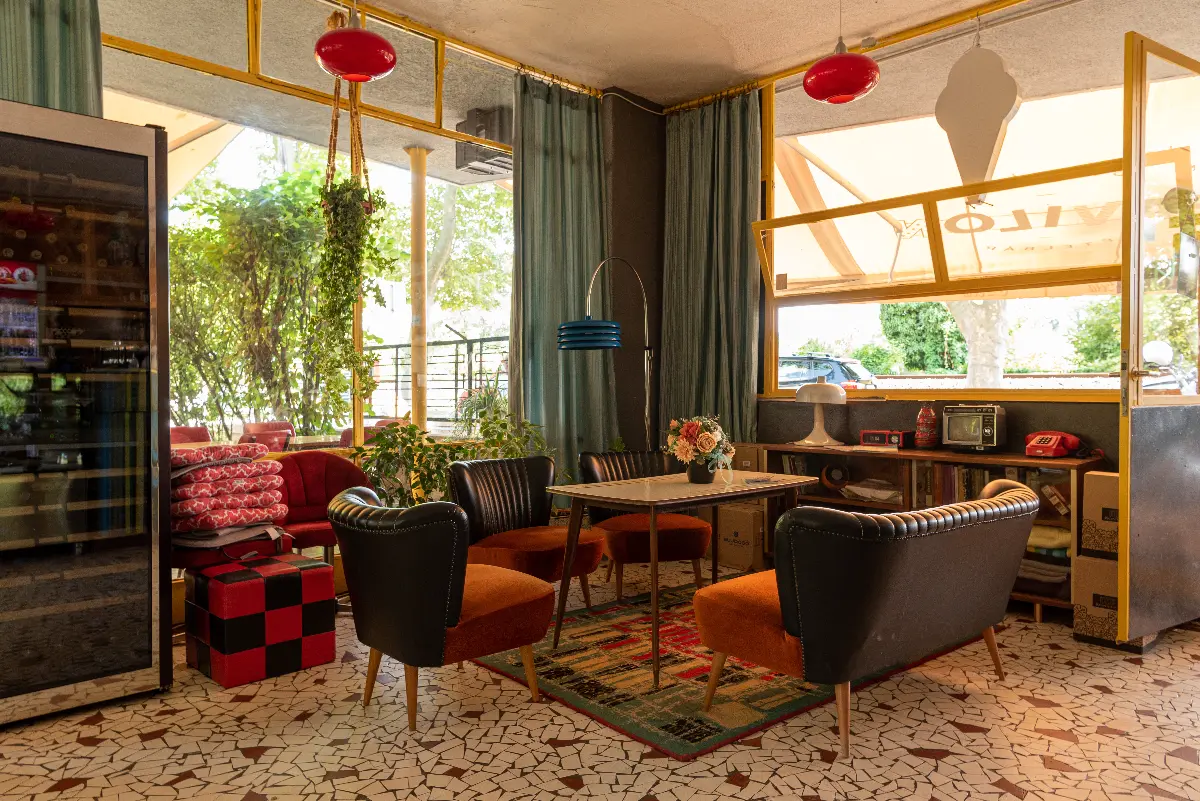
Yet you didn’t settle there, in 2020 you gave up leading a double life for more than two decades and moved home permanently.
Robi: Yes. Over the years, I had so many ideas of recipes that we decided to launch an enterprise. Meanwhile, we felt more and more homesick. There was no question that we would realize our ideas at home. After launching the Pavilon, we commuted for another five years, we worked abroad from September to May, and then we came home for the season. However, leading a doble life was very onerous, and the situation created by the coronavirus ultimately led us to eradicate our life abroad.
I know that you insist on high quality so much that you bring several raw ingredients directly from Italy to Balatonboglár.
Robi: You can say everything! Flour, pasta, tomato puree, crudo ham, yeast, salt, cream. If you have a look at the storeroom, we have almost only Italian ingredients.
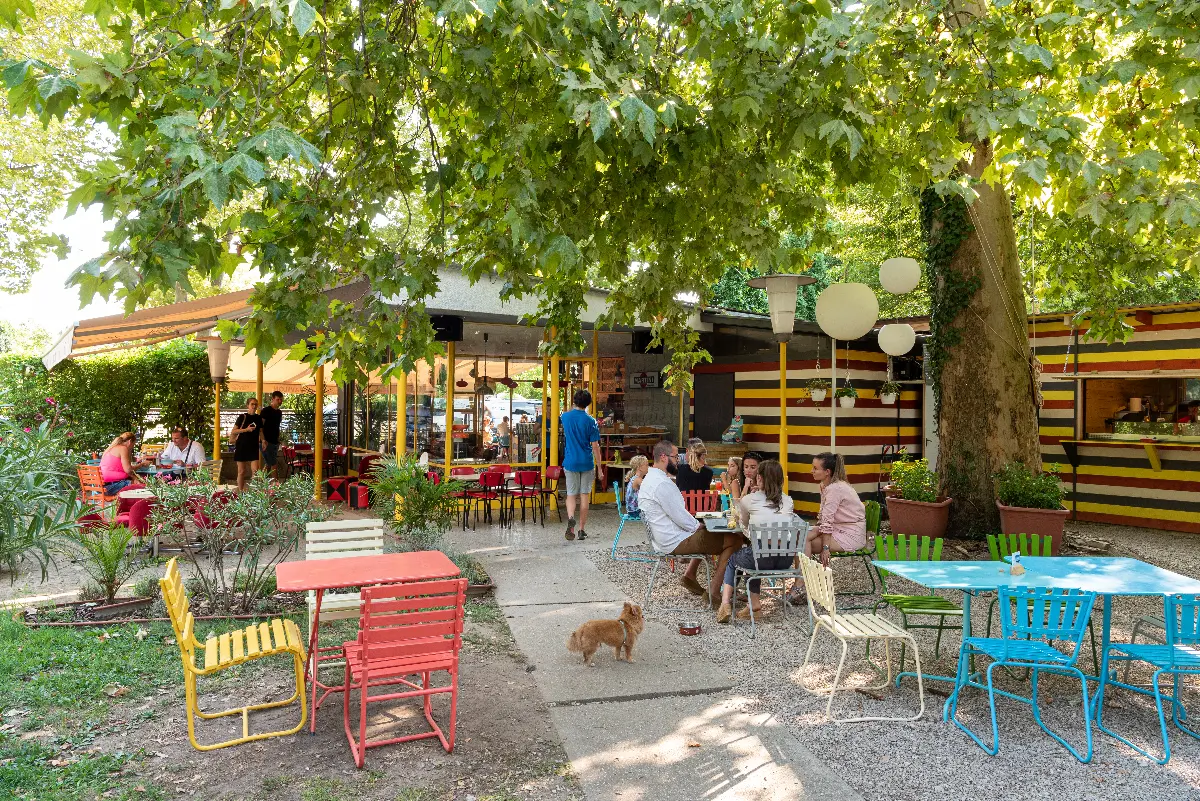
I always get the answer “all of them” to the question “which is your favourite food.” “But really: which are you proud of?
Robi: First of all I was familiar with pasta, one of my first recipes was the zucchini linguine, but we also have “black” pasta and fried gnocchi of bolognese made from crudo ham. I also really like making pastries, and I cook ice cream as well.”
Dorisz: And then the pizza! It also has an interesting story: In Merano, we experimented with our recipes on our balcony with an electric oven. On Tuesdays — when it was Robi’s day off — the family tasted pizza. We lived in the old town, so the whole neighbourhood chuckled at us because they knew that if it was Tuesday, the bald pal would come to bake pizza with the big shovel.”
It is difficult to move people out of the magic circle of hekk, langosh, pancakes filled with cottage cheese that defined the gastronomy on the shores of Lake Balaton for decades. What is your opinion of the hegemony of Hungarian beachfood?
Robi: These dishes also play an important role in Hungarian gastronomy, you just have to find the places where they are prepared well.
We also have our never-failing ice cream bar, places to eat a pancake and a langosh. You don’t have to rethink a classic dish to make good. Based on old recipes, you have to work with good quality ingredients and the miracle is performed.”
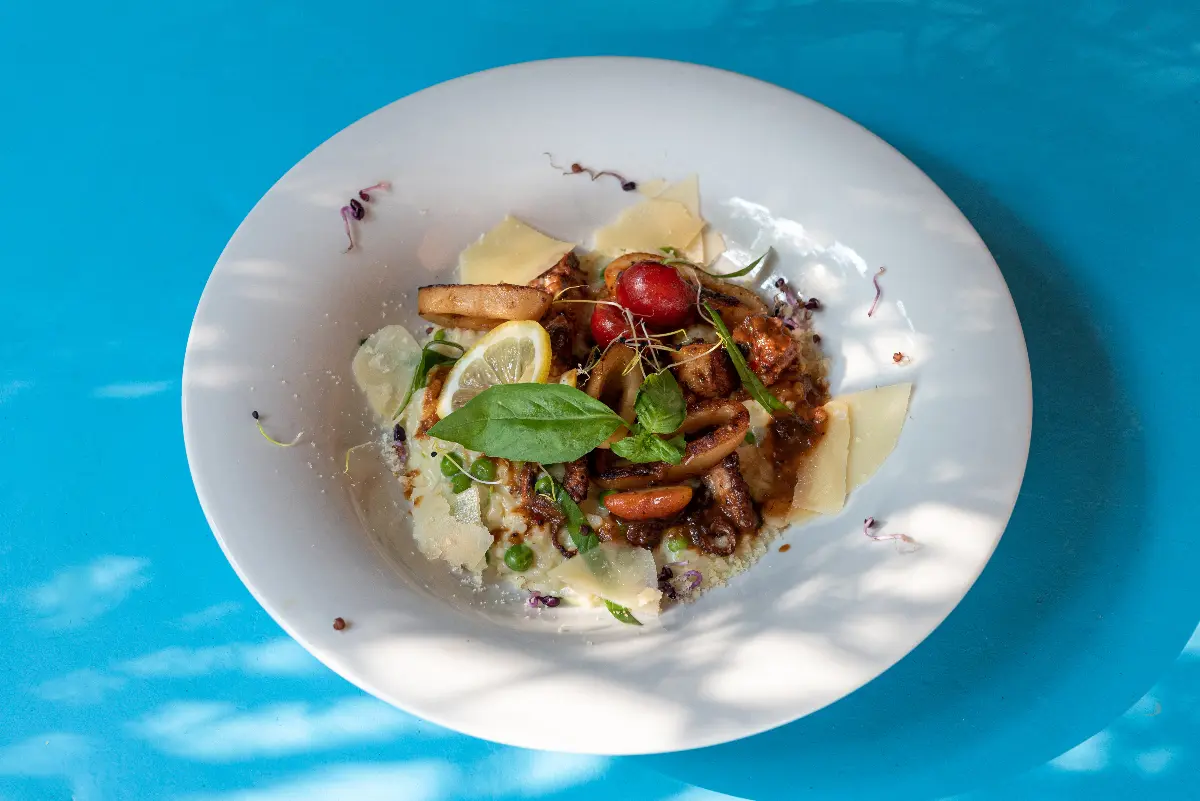
We hope that self-realization doesn’t end with the Pavilon, do you have any other plans for the future?
Robi: We’ve recently bought a Piaggio that we set up in front of the restaurant and sell the ice cream from it. Then we pledged that it would be the last innovation. However, I still have a little dream. We have a plot of land on Kishegy where we would take the ice cream with Piaggio. If with nothing else, we could expand with ice cream and cakes, and as I know ourselves, we will. We can't sit on our butt anyway.

